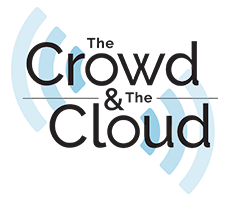
Newsletter
Sign up and stay in-the-know about The Crowd & The Cloud and the world of citizen science.

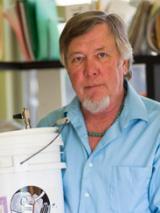
My name is Denny Larson. I work with the Community Science Institute - CSI for Health and Justice, on environmental and social justice issues by helping communities do their own environmental monitoring when they're living in a very polluted situation, and showing them how to use that data effectively to win their campaigns.
What is Global Community Monitoring?
I'm the founder of the Global Community Monitor, also known as the Bucket Brigade. I developed the Bucket Brigade techniques and organizing methods while I was with Communities for a Better Environment, based in California. You name it, we can come up with a way to test for it, and train communities to do the projects in their own communities. It empowers impacted people to find out what they're being exposed to and to take action to fix it. We call it “participatory research,” “citizen science,” or “community based participatory research.” I personally like community based participatory research because it's led by the community at every level.
Community organizing comes out of the labor movement, organizing workers against bad policies and low wages. It's not really different than being an active member of, say, your church, where you're giving time and money to a cause that you believe in. If it's done right, it has something for everybody to do. Even the person that doesn't have much time can contribute. It does require a full time organizer dedicated to getting people to come to the meetings, make the phone calls, show up at hearings, take an air sample, etc. That's a hell of a lot of work!
Can you give us some examples where community organizing has brought change?
As far as the environmental movement in the United States over the last 100 years, it was initially a conservation movement. That changed when the post industrial era started to wreak havoc on communities and there was this need to use those strategies to fight back. It started with people being upset with birds dying because of pesticides, and Rachel Carson's book (“Silent Spring”), which still resonates today. It got into the Environmental Justice movement in the South where dumps kept proliferating right on top of African-American neighborhoods, leading to one seminal event where members of the community sat on a North Carolina highway and were arrested for blocking trucks. The Clean Air Act, the Clean Water Act, all of those things were hard fought by organizers both at the grassroots level and the national policy level.
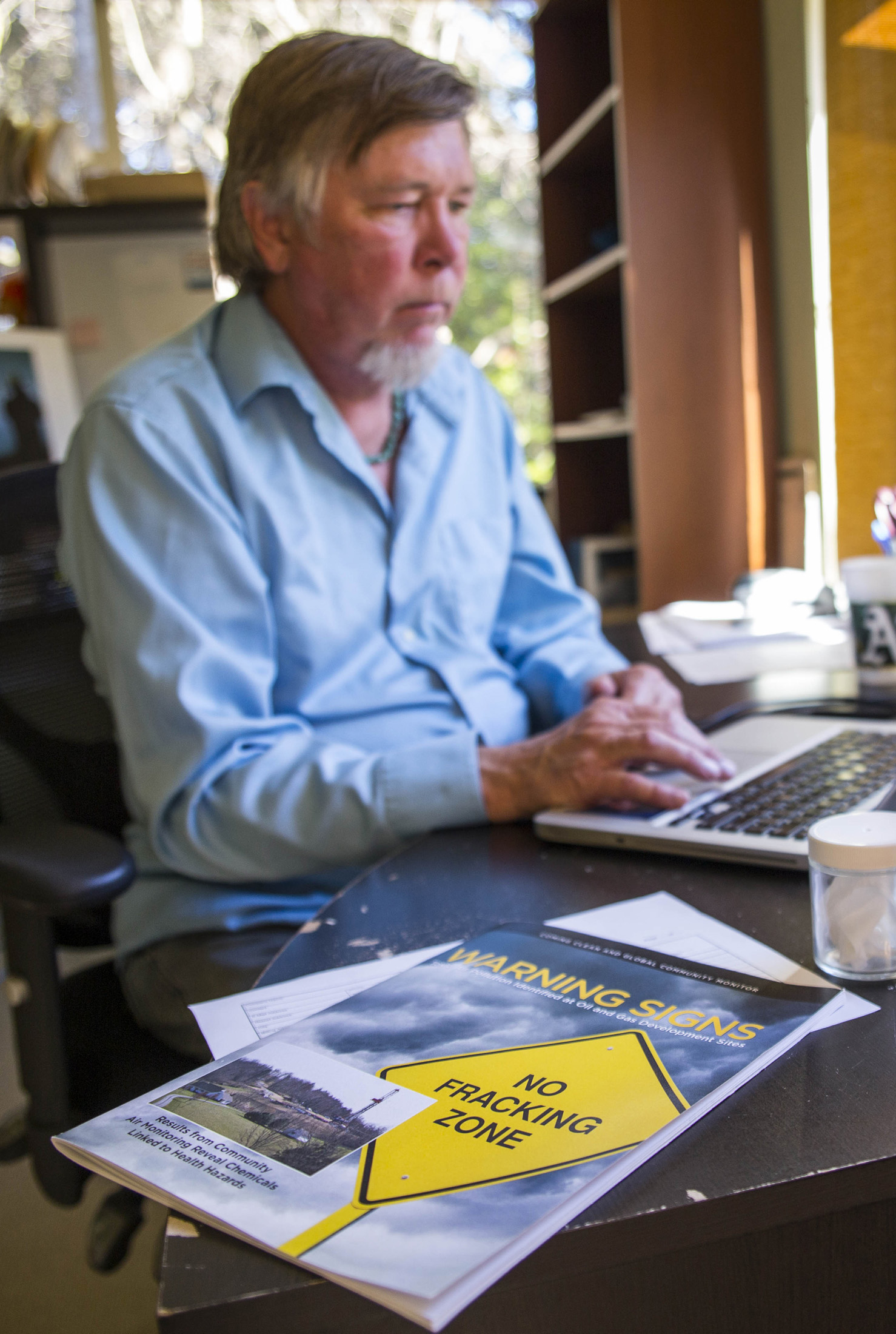
Denny continues community organizing following the release of the "Warning Signs" report.
What are some of the issues that you've been fighting for and against over the last 30 years?
Working as a door-to-door canvasser for a group called Communities for a Better Environment, I saw my first refinery. I started hearing all these stories, people sick, the smells knocking you over, the (official) air monitor was five miles away on top of a hill. Everybody tells us we're crazy. I mean that's something in this line of work, you hear just about everyday. People who live on the fence line are totally marginalized. It's a very small percentage of the total population, but they're essentially in the sacrifice zone. People want their gasoline, and they want it cheap.
From the very beginning it was a “right to know” issue, and still is. People wanted to know what they were breathing. It's not an optional thing that you do. You can go on a fast and skip meals. You can go on a hunger strike. Eventually you'll die, but breathing is something you do every minute of every day until you're dead. Increasingly with citizen science, there's recognition at the highest levels, even coming from the White House, that citizens have a right to conduct their own science to find out what they're breathing.
We've come pretty far. We've got a ways to go though. I'm proud of the work I've been able to do with communities, it's rewarding. It's an area where obviously service is needed from people who are outside of the community to bring in resources. Citizen science has changed. Back then scientists said they didn't want to give air monitors to a community because they couldn't be trusted to take the sample. None would believe it anyway, it would be outrageously biased. That never sat well with me. There's gotta be a way.
The Unocal Catacarb disaster actually made it happen. The attorneys that brought the various cases were led by Ed Masry and Erin Brockovich, who I had the pleasure of working with. After actually being exposed themselves one day to a further release from the company, in which Erin was made ill and almost lost her cornea, Ed in his typical flamboyant way picked up the phone. He called an environmental engineering firm and started cursing like a sailor about how he needed a monitor he could give his clients. And out of that came the bucket, the design of which they paid for. The original version was very expensive, but we've made it smaller and cheaper for use in the Bucket Brigade.
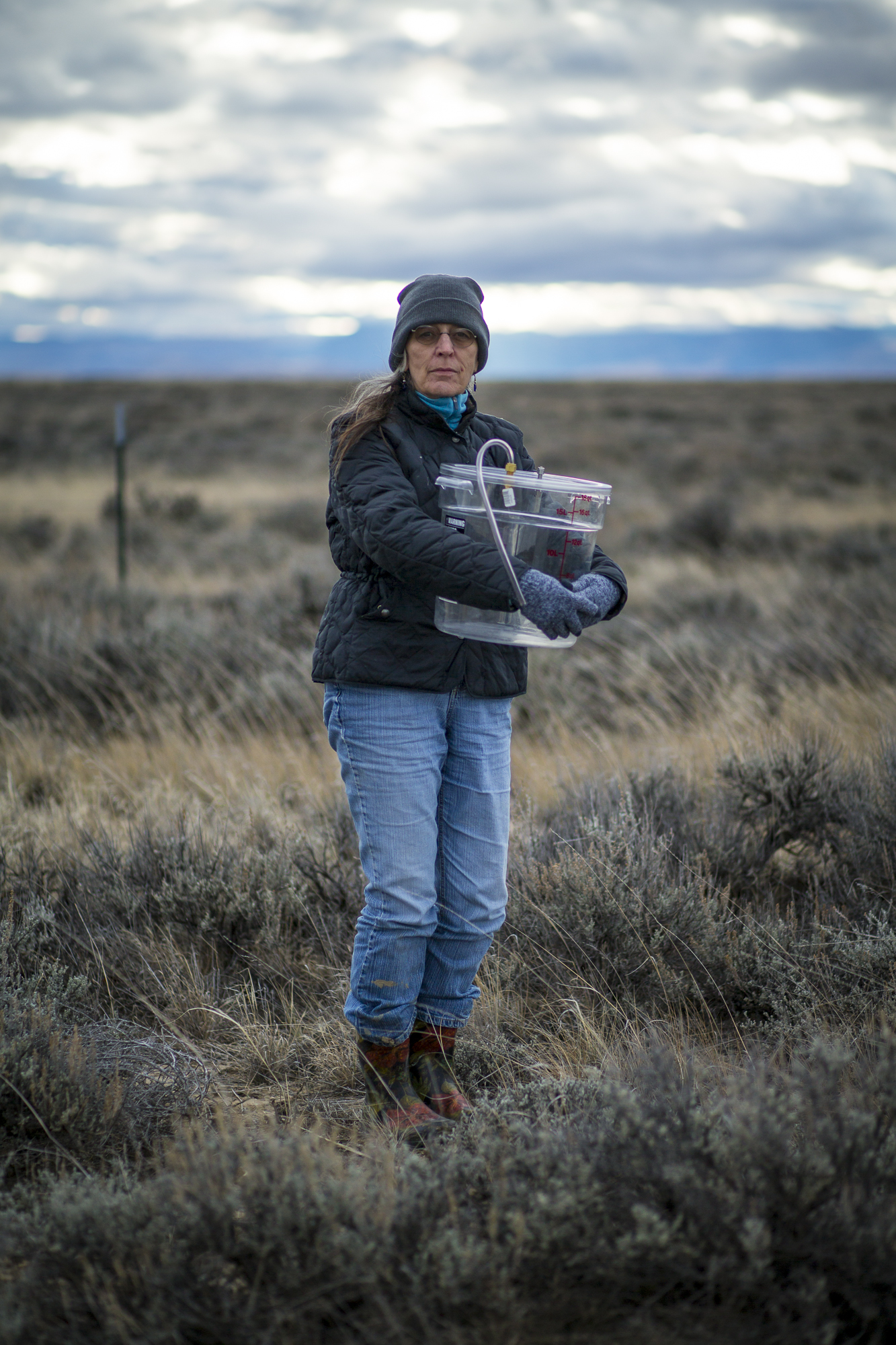
Deb Thomas with her air sampling bucket in Wyoming.
What is the Bucket Brigade?
It's literally taking a plastic bucket and putting some stainless steel on it that will hold the sample bag. The bucket is the body, the bag is the lung, and there's a pump that serves as a diaphragm, bringing in air so it can be sealed and sent to the lab for testing. It's the $125 version of $1,000 canister that you would use if you were a state agency or the EPA. We make the tool accessible to people in fence line communities by doing a MacGyver thing, and reengineering things to be cheaper and easier to use.
We're an honest effort to find out what people are breathing. And sometimes that means you take an air sample and you don't catch it because it's just kind of floating through the air. You have three minutes to fill a bag with the toxic air that you're exposed to. Wind is blowing, wind is shifting, all kinds of things are happening, you got this thing you can't see, and you need to get it in the bag. It's a bit of a rabbit trick, in a way, it's not easy. But it's certainly not something that's unscientific or uncredible. Luckily we're about to complete an extensive quality control, quality assurance document with the EPA, and they're going to sign off on it officially. The Bucket Brigade is a scientifically credible way for citizen science to be conducted.
We approached the EPA back in the early 90s about certifying the bucket and its methods as being credible. They said, "Well, wait a minute now. We're going to have to do a bunch of testing.” I said, "Fine, bring it on." To test the reliability of the bag and the bucket system, we placed a bucket right next to an EPA canister and took a sample at the same time. It's called side by side sampling. Well, the EPA found that the results were extremely comparable, in some cases just a couple parts per billion difference. Here’s the catch, you can’t test for sulfur gasses in a canister. There's no accepted methodology. With the bucket, there is. We can test for 20 hazardous sulfur gases commonly found around oil and gas operations. We really needed that. At the end of the day, they did issue quality control documents. Those are the top people in air monitoring, by the way, not just some schmuck down there pushing a pencil in the corner.
We went to the well pads, and took many samples of uncontrolled emissions: sulfur and volatile organic compounds. There were high levels at the well pad because they don't follow, due to the (so-called) Halliburton exemptions that were posed in the Bush era, the same specifications that oil refinery equipment would have to meet for its compressors, pumps, seals, for control of hazardous air pollution.Compressor stations are a huge source of ultrafine soot particles so tiny you can't see them and they stay lodged in your lungs. Recent medical studies show that diesel soot is one of the most hazardous, lethal air pollutants that's out there and exposures at high levels, like at compressor stations, can cause heart attacks, stroke, asthma attack, hospitalization and premature death after three hours of exposure. It's not like this cancer thing where this guy has been living next to a well for 30 years and now he's got benzene leukemia. It's not the slow motion killer. It's the BOOM. And then there's our friend formaldehyde. Very high levels, very toxic, hazardous air pollutant, powerful carcinogen.
Can you explain to us what fracking is?
They are trying to crack the rock by creating pressure and using toxic chemicals in very fine silica sand deep underneath the earth, which in the process will release natural gas. All this stuff is shooting down there, hitting the rock, fracturing it, and releasing gas up through the pipeline so it can be processed and sold. Natural gas is basically methane, plus other contaminants that might travel with it. It's a very efficient fuel compared to diesel or gasoline and until recently, the markets were pretty good for it until it got flooded. Oil and gas development, particularly unconventional oil and gas development, such as fracking, is not safe. It can't be made safe. It's inherently dangerous. You're dealing with explosive toxic chemicals that are unregulated, hazardous air pollutants. By intention, you’re blowing those out into space where people breathe and live. That's the design of the model, and by doing so, you're saving a lot of money. And we all know how much the oil companies need more money. It's really sad.
The idea that fracking and oil and gas development is safe is just completely a myth when you go on the ground and see it. Everywhere you go, “WARNING! Hydrogen Sulfide may be lethal!”, “DANGER, DANGER! No smoking.” It's filled with these signs, everywhere. How can it be safe if you're having to label it like that? It just doesn't pass the laugh test.
There's a growing network of ordinary citizens who are joining together using citizen science to stop this kind of development. That ought to be encouraging to the ordinary person, because if you can get lifelong Republicans to be standing up to big oil, then that's a big deal. And it's a powerful army movement of citizens that's building to take these guys on. We got a long way to go, but it's very encouraging.
Can you tell us about the exemptions that oil and gas companies get to the Clean Air and Clean Water Act?
If you live next to a factory, that factory has to follow federal laws to keep them from poisoning your water, air, soil, the bay or river that they dump their discharge into. You're protected. When the oil company comes into your backyard, you don't have that. They're exempt from those federal regulations, they can do whatever they want. That right there oughta tell you something! Until we get rid of those exemptions, we're not going to be even close to safe next to any of these facilities.
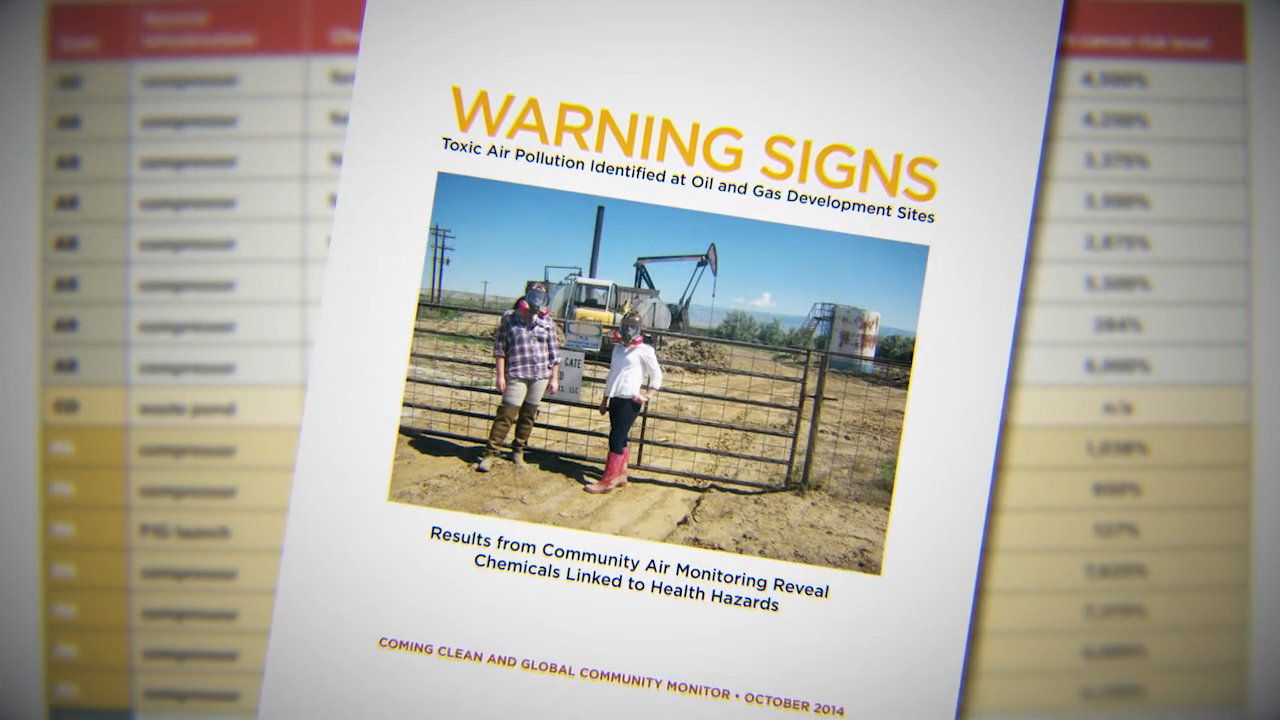
The "Warning Signs" report contains data from the Bucket Brigade's citizen science efforts.
Tell us a little bit about the “Warning Signs” Report?
There was a previous report that we did in New Mexico and Colorado. We produced a groundbreaking study that showed a lot of really high results. We released it nationally, but got very little coverage. We needed to bring the East coast into this, Pennsylvania and New York are in a big throw down out there with the frackers. We picked those states as well as Colorado again, but also other legacy states like Wyoming, Arkansas and Ohio. We did get a lot of national attention; National Geographic, all the British papers picked it up because the journal is published out of London. There was widespread coverage across the US and also globally of both the peer reviewed study and the report, and it had a major impact in the Department of Health, New York State. At the press conference announcing the fracking ban, they held up the study and said, "Here's some of the things we relied on." It was very gratifying.
The first thing that happens is the sites are selected, and the citizen scientists are trained on site. The samples are taken and shipped to the lab overnight with a chain of custody form. After 10 days, the lab reports are emailed to us and our experts, in this case Dr. David Carpenter, interpret the sample results. All the data and interpretive reports are shared confidentially with the community members that are part of the project. They own that data. “Warning Signs” took 6 months, it was really an incredible amount of data. Then it's getting it to the EPA, state officials, everybody we want to influence. It's really powerful to have the report to slam on the desk.

Results from the "Warning Signs" report were shocking.
The most shocking part is in the Summary. We looked at formaldehyde in Arkansas and the numbers are between 36 and 48 parts per billion. That doesn't seem like much, couple drops in the swimming pool. That happens to be 6,000 times over the EPA's cancer risk threshold. Many of the percentages were like that - 4,000 or 5,000 percent higher than what EPA sets as a cancer risk level that's acceptable. Many of the toxic chemicals that are known to cause cancer in this report were in some cases hundreds, thousands, and in one case 22 million times over the EPA cancer risk. Clearly there's a problem here that we've uncovered.
What motivated the peer review from the study? Do you think it legitimized your efforts?
Adding a peer review to efforts in citizen science is a very powerful thing because it validates your theories about toxic exposure. Our first report was not getting coverage; we didn't have a peer reviewed study to back it up. So we recruited a bunch of scientists, attorneys, and doctors, and wrote the journal article that accompanies the report Warning Signs. We needed people to help us like Dr. David Carpenter, and Gregg Macey, who had done it. Gregg Macey had done a peer reviewed study on the Bucket Brigade back in the 90s. It was about how the Bucket Brigade was able to influence regulators to take more of their own samples and do more enforcement actions both in CA and in Louisiana.
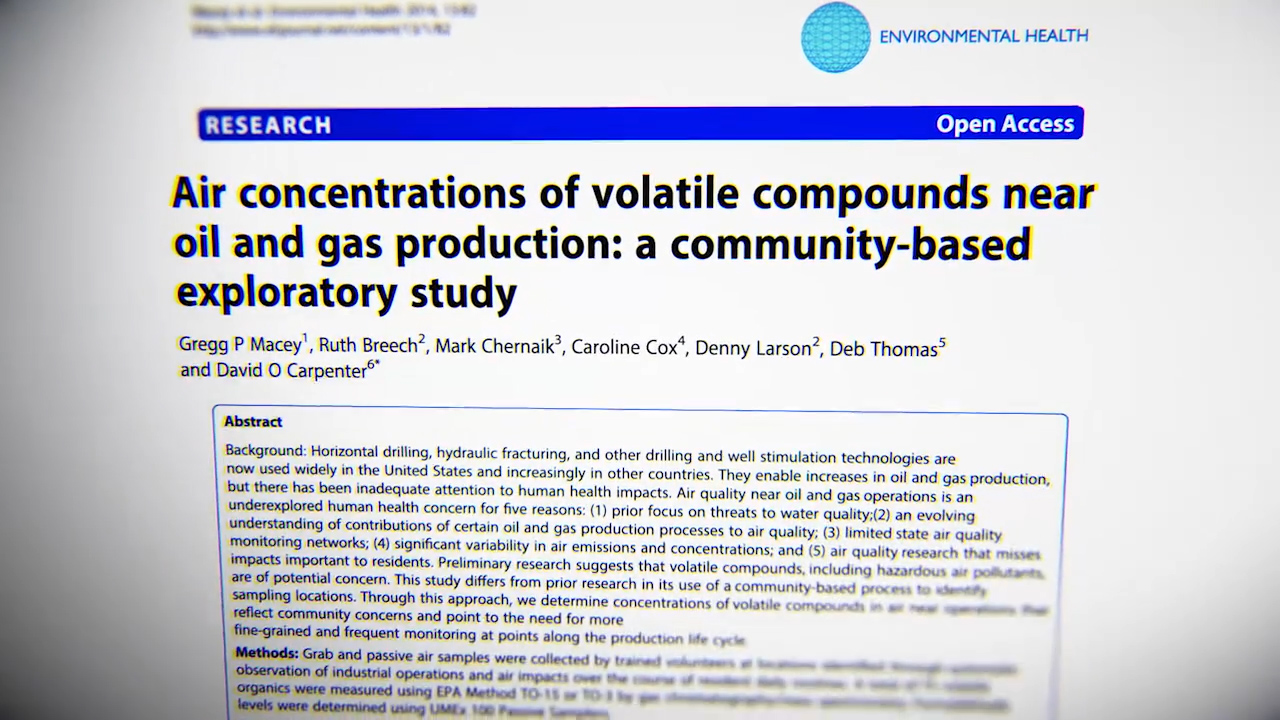
Peer reviewed research paper provided hard evidence on air quality.
We’re making very good progress at EPA, rolling back some of the exemptions that were congressionally mandated through other means. They've also been big backers of citizen science, of people fighting fracking. Things are really moving well at EPA right now, which with Congress in the state of affairs it’s in and with the uncertainty about our next President, is really the only venue that's viable for action. We've also turned over our information to the Enforcement Division at EPA, hoping that there's going to be major enforcement actions against the oil and gas industry. (This interview was done in early 2016, before the Presidential elections and the changes currently underway at the EPA.)
Why should somebody who isn’t directly affected care about somebody who is?
Look at the cost. Take a look at Louisiana because that's another legacy state for oil and gas development. What is the cost that they are paying today, like at this very hour? This hour a football field sized chunk of land is disappearing in Louisiana. It's going underwater. That happens every hour of everyday. Until it gets worse, then it's going to be two football fields. They're literally losing the part of the state that can protect them from hurricanes. When those things happen and the levees break, the towns are flooded, and people die. The oil and gas industry is relentless in their production in that area of Louisiana. Out there they have to cut canals, literally slicing and dicing the land that's left into swiss cheese.
Take, for example, a pristine area. In Northwest Pennsylvania where people are out living in the country, loving their environment, going for walks, and now their access is cut off. Their quality of life is terrible, breathing this stuff, the noise of the trucks on these country roads constantly going back and forth, running into people and killing them. I mean, it's crazy. What is the price of losing quality of life? I don't know if it's calculable, but it's real and it's hurting people all over the world.
Why should you care as someone not directly impacted? I think most affluent Americans who do not live on the fence line of these facilities get interested though climate change, and the rise of sea level. We already know from NOAA that we are going to lose part of our coastline in California. So the rich person with the beach house that's 150 miles from a frack well, you're impacted by that. You're still affected if you live anywhere on the planet.
You could look at it as human rights issue. If somebody is being poisoned, legally, I don't know how it could be more of a human rights issue. It’s the basic right of being able to breathe, live your life; raising a family, working at your job. These people, they haven't broken any laws, but the people that are affecting them essentially have, except that they got a get out of jail free card that's the size of an oil tanker.
What’s the value of protecting the environment?
I think it boils down to one thing. The environment is the future that our children will live in. They will live in an environment that has been dramatically changed since the toxic industries and oil companies started doing their thing more than 100 years ago. It's a pretty bleak future with the predictions for climate change and changing of environments, people not being able to do what they did before to earn a living because it’s inhospitable to it now.
For some people, the climate thing is a harder sell and they think it's just another excuse that environmentalists are using to attack the energy industry, for example. The thing about the energy industry is that it threatens just about everything that is essential for life on Earth, starting with air, water, the condition of the soil for growing healthy plants that we could eat. All of that is affected negatively at every point in the oil and gas industry, including the burning of fossil fuel in your car or on your stove, all of it. Cradle to the grave.
Do citizen scientists collect high quality data?
I think one of the criticisms of citizen science is that we're just organizing people with data. “It's an organizing model, it's not a science project.” They of course criticize the equipment, the bucket. The other major criticisms mainly boil down to: “We just don't like you doing that. You're not a trained professional, why should we believe your samples are accurate?” We use chain of custody and follow the training methods. A sample is the real deal. Sometimes it’s zero, and sometimes it 224 million times higher than it should be.
I'd say the bias of a citizen scientist who lives by a fracking site is a good bias. It's a bias based on experience. That person's bias is “I smell the stuff, it makes me sick, I want to know what it is and I don't want to breathe it anymore.” We don't cherry pick our samples. We don't throw out samples that say zero because that's going to skew our percentage. We report everything transparently, which is something that our critics don't do. They hold their data, even an agency will hold all their data for a year. Then 3 months later they'll publish a boring report about it that doesn't really tell you anything. Transparency is part of our strength. People who experience this stuff firsthand know what's going on, they’ve gotten some really good training out of life experience. Video
The citizen science that the Bucket Brigade does is far more rigorous than most agencies and definitely companies. They don't test for these chemicals, but they know that they're putting them out. They put out a toxic release inventory report every year that says we put out 1,000 pounds of benzene a year, 5,000 pounds of formaldehyde, we put it in the air, we're permitted to do so, so it's okay. But did they measure if it's 22 million times over the cancer risk? No. Look at the number of compounds that we test for, looking at different emissions that might be hazardous to people's health, not just the ambient air quality. We're being far more rigorous than government or industry.
The method that we're using here is to test the theory that either toxic chemicals are fine by oil and gas development, or something is rotten and it's affecting people's health. Agencies do not collect that data, not routinely, and often never. You can't answer the question without collecting the data. It's that simple. Why not use people that are living in the middle of that situation, who've gained experiential knowledge, to be your samplers? Those are the best people. If you've lived it then you know what you're talking about.
An experiment is when you're going to do something intentionally to just see what happens. These people on the fenceline aren't really doing anything intentionally. They're gathering data. Things are being done intentionally to them and their environment by the operation of these facilities, and they're just trying to grab ahold of that. You don't come in and experiment on people. This is more important than an experiment, it's what people are living through and we're trying to figure out the truth. You could create a whole boatload of scientific evidence, data, samples, etc., but if you don't know how to organize and use that data to make change, then it's a waste of your time. This is not a waste of people's time. This is people recording what they're living in scientifically accurate way. Not as an experiment, but as a way to make something change. That's how change happens. We do purposeful science; we protect public health. It’s probably the best science that's out there.
Tell us about the law that was recently passed in Wyoming. Is your work disrupted?
There were people gathering samples in an area of ranchland and development near a large number of ranchers, and they were measuring water quality changes over time. The ranchers didn't like that. They went to their friends in the state legislature and said, "We want you to stop people from taking samples, taking pictures, any citizen science evidence. Then arrest people for doing it, they'll get scared, and stop." Well, they haven't gotten scared, luckily. And they haven't stopped.
It's a violation of our right of free speech, which in the digital age includes photographs from cell phones, videos on Youtube, etc. If you trespass on private land and take a picture or sample, you could be arrested for trespassing. The real problem is that they don't like citizen scientists collecting data on public lands. If more and more people are doing citizen science, it's generating information we need to make decisions. Right now, without the citizen science movement around oil and gas development, for example, there's no new information. So it seems like we just do what we've always done: let them get away with it. That has to change. And the way we change it is producing credible data to start with and then using it wisely.
What’s the story with the Bucket Brigade in Tonawanda?
In Tonawanda, NY, there's a concentration of toxic facilities just north of Buffalo, and residents were very concerned about their health, what they were breathing. We took a number of samples by the Tonawanda Coke Facility, which showed high levels of benzene. We took that data to the state of New York, and began having a dialogue with them about the need to invest resources in doing sophisticated, real time monitoring for benzene around the facility. That data came back, as it does in almost every case, far worse than the bucket sample. Hundreds of times worse.
Tonawanda is a good model because it showed how citizens could raise some hell, get the attention of an agency, and then figure out a way to work cooperatively. Unfortunately, that's a fairly rare experience. The EPA and Department of Justice decided that perhaps something more funky was going on at the facility and they called a raid early one morning. They removed boxes and boxes of evidence, which became part of a federal criminal conviction for air pollution. They also collected the environmental manager in handcuffs and locked him up in jail. That's the way it should work. They should be thrown in jail for doing this stuff. It's not only illegal, it's immoral and it requires very harsh punishment if you're going to make any kind of dent in the system.
Why should citizens have to collect data? Aren’t there people being paid to look after public health?
The reality of the situation is you have people who are being exposed, who have the ability to gather scientific data and be part of enforcement. When they learn that they can take their own air test, it's a very positive thing in a very negative situation. And that's why the Bucket Brigade is so beloved by people because we didn't just come and talk to them, we didn't just come and say let's do a protest, or even a blockade. We came to them and gave them a bucket that they built so that they could do something proactively when this happens again, and then know what it was that happened to them. That's what really makes it so powerful.
The role of community members is they already are the monitors in the community. A monitor is something that breathes air and then analyzes it. That's what community members do when they live in a toxic hot spot. They breathe every day. And they realize what they're being exposed to, they experience the health effects, they go to the emergency room. I don’t think agencies need any help with doing ambient monitoring for smog, they have a very robust network, they do a good job of it. It's just that they stop there. Part of American culture is community participation in watchdogging the government, not just sitting back on our couches and playing video games. Should they do more? Sure they should. But one thing they shouldn't do is devalue citizen science, but rather promote it. Because there is not enough money, monitors, or people at EPA to cover the size of this problem. The problem is huge. We need citizen scientists to plug some of those gaps in data information and provide motivation for regulators to do better.
What is needed for the future to be a better place?
Scientists around the world, in unison, are saying we have to stop climate change and reduce greenhouse gasses, most logically by keeping fossil fuels in the ground, period. Another thing we need to do is start having companies prove chemicals are safe, rather than leaving it up to us to prove they’re unsafe. They are innocent until proven guilty I guess they'd say, which is pretty ridiculous.
I definitely have hope. You have to have hope in this line of business because there's a lot of negative things happening out there to a lot of good people who don’t deserve it. I'm hopeful for the future because there’s a massive movement of people using citizen science and their supporters rising up to say, “This will not continue.” “This will change.” These people are ordinary folks, they're suburban folks. They're not just tree huggers. In fact they're people that probably called environmentalist “tree huggers,” or might still do it! But they're in the fight. And there's a very diverse group of people, including conservatives, that are joining together and there's a lot of hope in that.
